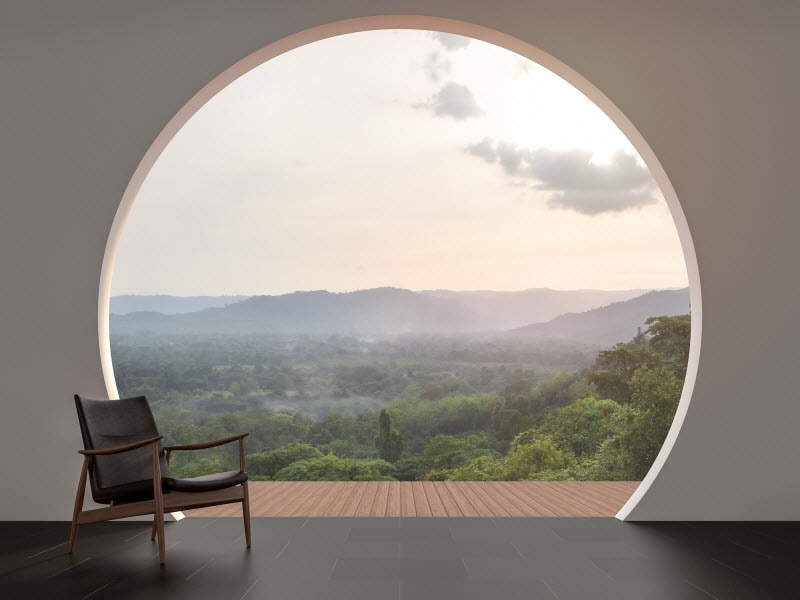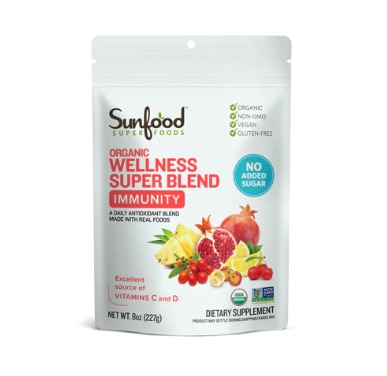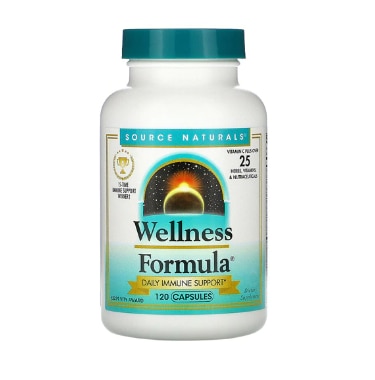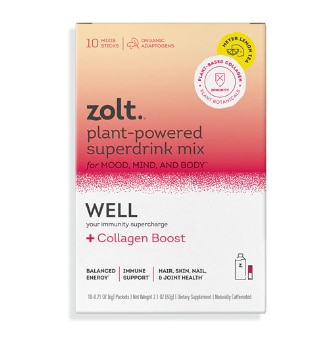It’s not you, it’s your house. Welcome to the world of wellness real estate, a growing trend in the real estate industry that focuses on properties that add benefit to your health and well-being. In many ways, the trend is a natural extension of the steadily growing interest in holistic health. Research supports the idea that people are thinking of home as a locus of wellness.
According to a 2023 healthy home survey of nearly 1,300 homeowners and renters of single-family homes conducted by real estate market research firm John Burns Research & Consulting, 95 percent of respondents said they believe their home impacts their health, and 73 percent said their health will be a deciding factor when choosing their next home.
Although geographical factors will change some of the specific qualities, the salient principles of wellness living are air and water quality, nontoxic building materials, mindful spaces, sustainable materials and biophilic design, which weaves nature throughout the home.
What is wellness real estate?
Here are some of the salient features of wellness real estate:
Healthy and sustainable materials
Wellness real estate emphasizes the use of non-toxic, sustainable and eco-friendly building materials to create a healthier indoor environment. This includes materials that are low in volatile organic compounds (VOCs) and free from harmful chemicals. The sustainability aspect emphasizes energy efficiency, renewable energy sources, water conservation and overall environmental stewardship. Anti-microbial surfaces and anti-bacterial features like touchless toilets are also a becoming more in demand.
Biophilic Design
Biophilic design principles are key to wellness design, incorporating elements such as plants, natural light, vegetation walls (internal/external), designs mimicking natural forms and patterns, water features, and outdoor spaces. Overall, the aim is to increase a sense of connection to the natural environment. This design approach is believed to have tangible health benefits that can reduce stress, improve mood and enhance overall well-being.
Air and water quality
Wellness-focused homes prioritize air and water quality through advanced filtration systems, ventilation and purification technologies. These measures aim to minimize indoor pollutants and provide clean and fresh air and water. Indoor air quality was the number-one healthy home feature that respondents to the survey mentioned earlier said they cared about. More than two thirds of respondents said they believe air filtration systems should be included as standard in newly built homes.
Mindful spaces
Wellness real estate developments often feature state-of-the-art fitness centers, yoga studios, spas and recreational areas to encourage physical activity, relaxation and stress reduction. According to Zillow, cold plunge pools are a hot commodity, primarily as a means to enhance circulation, reduce inflammation and boost endorphins. The presence of at-home cold plunge pools on listings has surged by 130% compared to last year.
Some wellness real estate projects incorporate features aimed at supporting mental well-being, such as meditation rooms, mindfulness spaces and access to mental health resources and services.
Certifications and Standards
There are various certification programs and standards for wellness real estate projects, such as the WELL Building Standard, Fitwel and the International WELL Building Institute (IWBI), which provide helpful guidelines and criteria for creating healthier homes. The WBI was just rolled out earlier this year and was a standard two years in the making.the residential WELL standard specifically addresses residential environments and concerns, such as sleep quality which encompassing acoustics, air quality and lighting to enhance this health essential.
Wellness real estate examples
Overall, wellness real estate aims to create living spaces that promote holistic well-being, encompassing physical, mental, and emotional health considerations. Here are a few examples of wellness real estate projects gaining ground in the U.S.
Delos – New York City
Delos is a real estate developer that specializes in wellness-focused buildings. One of its flagship projects is located in New York City, where it has developed residential properties incorporating features such as circadian lighting systems, air purification systems and wellness amenities like yoga studios and meditation rooms.
The Serenbe Community – Chattahoochee Hills
Serenbe is a wellness-focused community located near Atlanta, Georgia. It is designed with walkable neighborhoods, organic farms and green spaces. Residents have access to amenities like fitness centers, spas, trails and farm-to-table dining options, all with an eye to promoting healthy and sustainable lifestyle.
Translating the wellness real estate trend to your home
What if you would like to incorporate some wellness principles into your existing home but don’t have the means to complete an overhaul of your property? Here are seven ways you can elevate your home’s health:
Natural light and ventilation
Maximize natural light by opening curtains and blinds during the day. Ensure good ventilation by opening windows regularly to let fresh air circulate throughout the house.
Indoor plants
Add indoor plants to your living spaces to improve air quality and create a calming atmosphere. Choose low-maintenance plants such as peace lilies, snake plants or spider plants.
Nontoxic furnishings
Opt for non-toxic, eco-friendly materials when renovating or furnishing your home. Look for furniture, flooring, and paint that are free from harmful chemicals like formaldehyde and VOCs.
Clean air and water
Invest in air purifiers or indoor air quality monitors to ensure that the air in your home is free from pollutants, allergens and toxins. Install a water filtration system to remove impurities and contaminants from your tap water.
Create a mindfulness zone
Implement a designated space for relaxation and mindfulness practices such as meditation, yoga or deep breathing exercises. This could be a quiet corner of a bedroom or living space kitted out with comfortable cushions, candles, and soothing decor.
Holistic kitchen
Designate an area in your kitchen for preparing and enjoying healthy meals. Keep your kitchen stocked with fresh fruits, vegetables and whole foods, and minimize processed and unhealthy snacks.
Get on a biophilic bent
If possible, incorporate natural elements into your home design, such as wooden furniture, stone accents, or water features. Even small touches of nature can help create a sense of connection to the outdoors.
By choosing even just a few of these wellness-focused strategies, you can create a healthier and more harmonious, grounded living environment for yourself and your family. Explore for yourself how much better you may feel in a home that responds to and is connected to natural principles of design.




